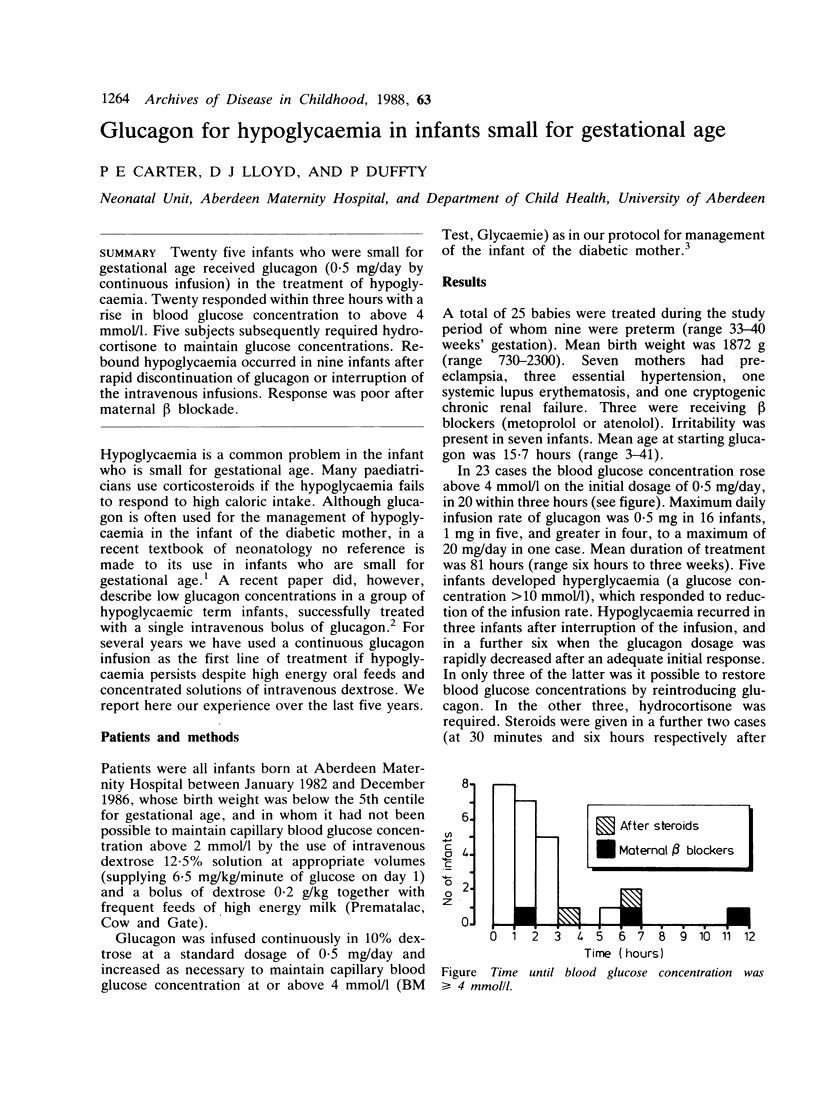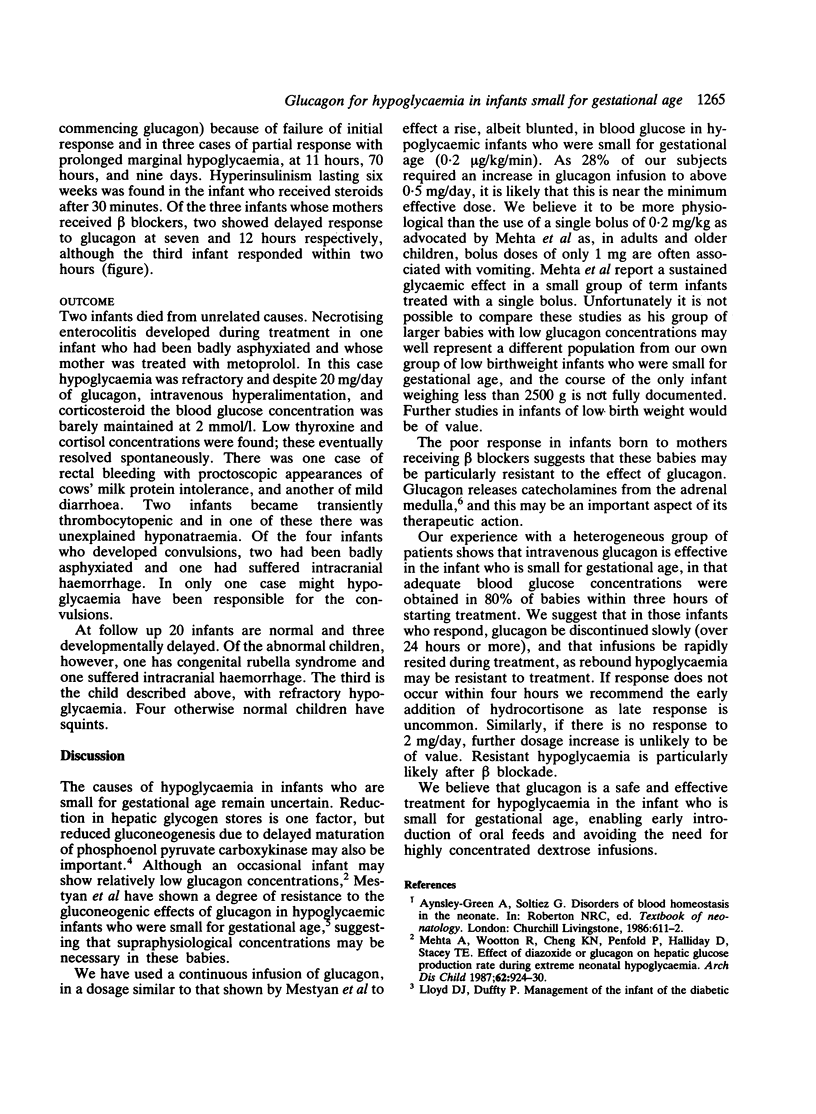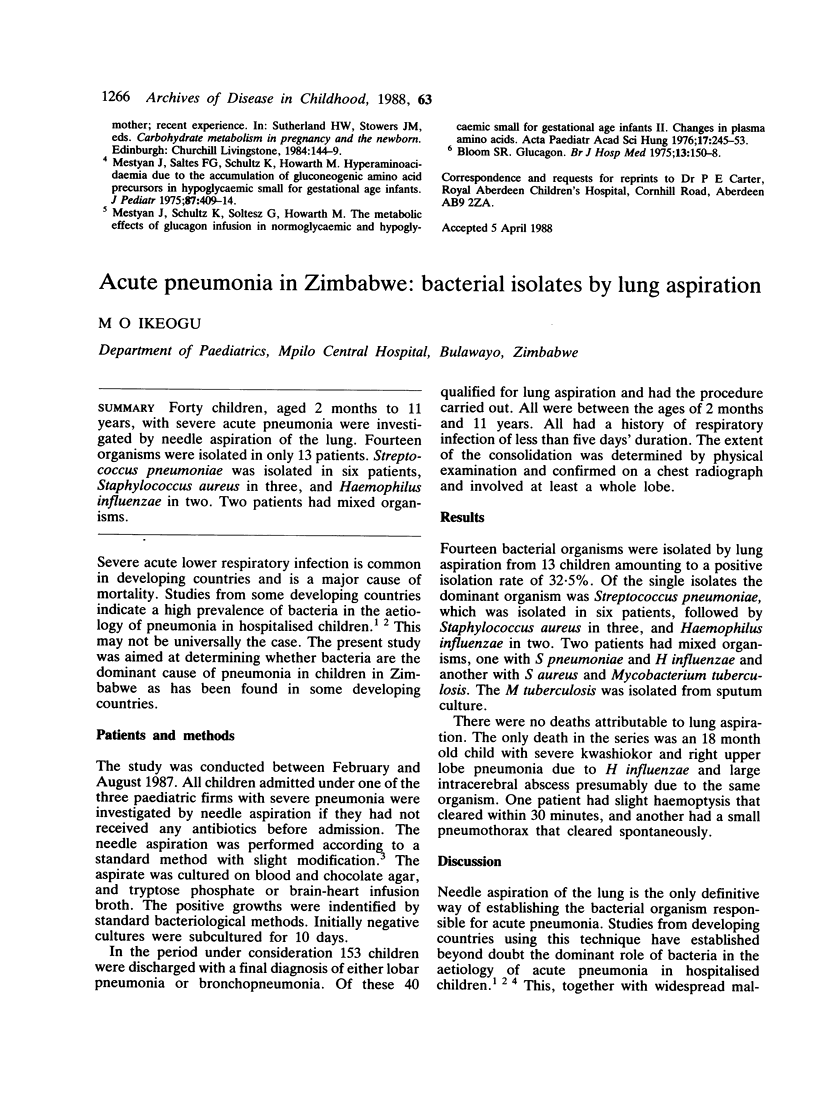Abstract
Twenty five infants who were small for gestational age received glucagon (0.5 mg/day by continuous infusion) in the treatment of hypoglycaemia. Twenty responded within three hours with a rise in blood glucose concentration to above 4 mmol/l. Five subjects subsequently required hydrocortisone to maintain glucose concentrations. Rebound hypoglycaemia occurred in nine infants after rapid discontinuation of glucagon or interruption of the intravenous infusions. Response was poor after maternal beta blockade.
Full text
PDF


Selected References
These references are in PubMed. This may not be the complete list of references from this article.
- Mehta A., Wootton R., Cheng K. N., Penfold P., Halliday D., Stacey T. E. Effect of diazoxide or glucagon on hepatic glucose production rate during extreme neonatal hypoglycaemia. Arch Dis Child. 1987 Sep;62(9):924–930. doi: 10.1136/adc.62.9.924. [DOI] [PMC free article] [PubMed] [Google Scholar]
- Mestyán J., Schultz K., Soltész G., Horváth M. The metabolic effects of glucagon infusion in normoglycaemic and hypoglycaemic small-for-gestational-age infants. II. Changes in plasma amino acids. Acta Paediatr Acad Sci Hung. 1976;17(3):245–253. [PubMed] [Google Scholar]
- Mestyán J., Soltész G., Schultz K., Horváth M. Hyperaminoacidemia due to the accumulation of gluconeogenic amino acid precursors in hypoglycemic small-for-gestational age infants. J Pediatr. 1975 Sep;87(3):409–414. doi: 10.1016/s0022-3476(75)80644-5. [DOI] [PubMed] [Google Scholar]


